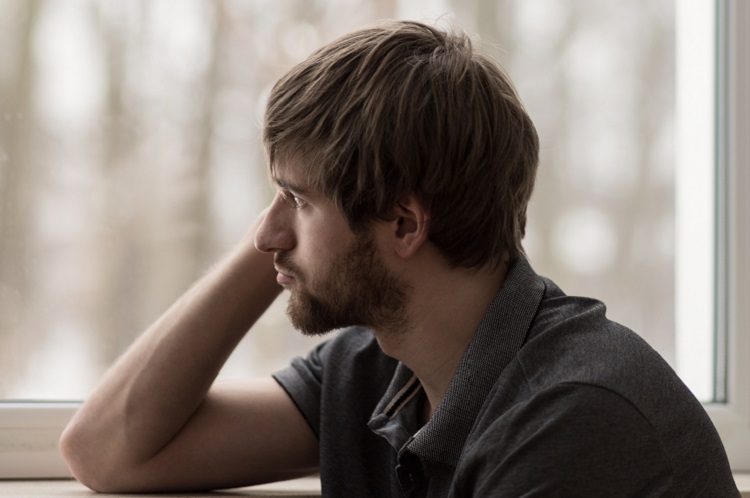
As coronavirus quickly spreads around the world, it is understandable that many of us are feeling fearful and anxious. These are unprecedented times, and no one can accurately predict how the virus will impact our social, spiritual, and economic realities.
However, that does not mean we are powerless or need to give in to fear. Even amid uncertainty, we can make choices to take care of ourselves and act in the best interest of ourselves and the common good.
Protect Your Health
Protecting recovery means protecting your health. Take steps recommended by medical professionals to minimize your exposure to the virus and help limit the spread to others. The Harvard Medical School [1] recommends the following:
- As much as possible, limit contact with people outside your family.
- Maintain enough distance (six feet or more) between yourself and anyone outside your family.
- Wash your hands often with soap and warm water for 20 to 30 seconds.
- As best you can, avoid touching your eyes, nose, or mouth.
- Stay away from people who are sick.
- During a COVID-19 outbreak in your community, stay home as much as possible to further reduce your risk of being exposed.
- Clean and disinfect high-touch surfaces in your home, such as counters, tabletops, doorknobs, bathroom fixtures, toilets, phones, keyboards, tablets, and bedside tables, every day.
Practice Social Distancing…Together
Good health hygiene during this time requires social distancing. However, this does not mean you must isolate relationally. We now have the technology that allows us to text, call, and Facetime with family and friends all around the world. Be intentional about communicating regularly with your support network.
Get Outside
Social distancing and staying home does not mean you can’t spend time outside. As the weather warms this month, take the time to go outside for walks and other outdoor activities. Just be sure to keep your distance from others and avoid large groups.
Talk About the Coronavirus
It is healthy to identify and express your emotions. It is normal to talk about the unusual circumstances we are facing. Naming your anxious feelings and thoughts around the coronavirus can help lower the anxiety when framed in helpful ways.
For example, rather than saying, “I’m terrified!” state out loud, “I’m aware of the feelings of fear” or “I’m aware of the thought that I might get sick.” What is true is that these are just thoughts and feelings.
They may or may not happen. Recognizing them as merely thoughts and feelings, rather than your current reality can help lower the anxiety.
Don’t Talk About it
 As much as talking about your concerns can be helpful, continually focusing on the virus will take a toll on you. Limit your exposure to news, social media, and others who continuously talk about the situation.
As much as talking about your concerns can be helpful, continually focusing on the virus will take a toll on you. Limit your exposure to news, social media, and others who continuously talk about the situation.
Put down the phone. Turn off the TV. Read a good book, play a game with your family. Clean out that closet. Find some ways to be productive and get your mind off of the situation for the time being.
Engage Spiritually
Research shows that those who seek spiritual growth have a greater likelihood of good mental health. The National Alliance on Mental Illness [2] reports that healthy religious practices reduce suicide rates, alcoholism, and drug use.
Other benefits include a greater sense of community, structure, and ritual, and increases in compassion, forgiveness, and gratitude. With the extra time you may have on your hands due to social distancing, invest in your spiritual growth through practicing spiritual disciplines, reading, and listening to online teaching.
With those things in mind, it is an excellent time to remember the Serenity Prayer widely used in Alcoholics Anonymous and written by Reinhold Niebuhr. The short version reads: God grant me the serenity to accept the things I cannot change, Courage to change the things I can, and Wisdom to know the difference.
REFERENCES
1. Harvard Health Publishing. (n.d.). Coronavirus Resource Center. Retrieved March 18, 2020, from https://www.health.harvard.edu/diseases-and-conditions/coronavirus-resource-center
2. National Alliance on Mental Illness. (n.d.). NAMI. Retrieved March 18, 2020, from https://www.nami.org/Blogs/NAMI-Blog/December-2016/The-Mental-Health-Benefits-of-Religion-Spiritual
About the Author:
 Travis Stewart, LPC has been mentoring others since 1992 and became a Licensed Professional Counselor in 2005. His counseling approach is relational and creative, helping people understand their story while also building hope for the future. Travis has experience with a wide variety of issues which might lead people to seek out professional counseling help. This includes a special interest in helping those with compulsive and addictive behaviors such as internet and screen addiction, eating disorders, anxiety, and perfectionism. Travis’ website is wtravisstewart.com
Travis Stewart, LPC has been mentoring others since 1992 and became a Licensed Professional Counselor in 2005. His counseling approach is relational and creative, helping people understand their story while also building hope for the future. Travis has experience with a wide variety of issues which might lead people to seek out professional counseling help. This includes a special interest in helping those with compulsive and addictive behaviors such as internet and screen addiction, eating disorders, anxiety, and perfectionism. Travis’ website is wtravisstewart.com
The opinions and views of our guest contributors are shared to provide a broad perspective of addictions. These are not necessarily the views of Addiction Hope, but an effort to offer a discussion of various issues by different concerned individuals.
We at Addiction Hope understand that addictions result from multiple physical, emotional, environmental and genetic factors. If you or a loved one are suffering from an addiction, please know that there is hope for you, and seek immediate professional help.
Reviewed and Approved by Jacquelyn Ekern, MS, LPC on March 24, 2020
Published March 24, 2020, on AddictionHope.com
